Tag Archive: diversity
October 2, 2017
“We cannot live for ourselves alone. Our lives are connected by a thousand invisible threads, and along those sympathetic fibers, our actions run as causes and return to us as results.”
– Herman Melville
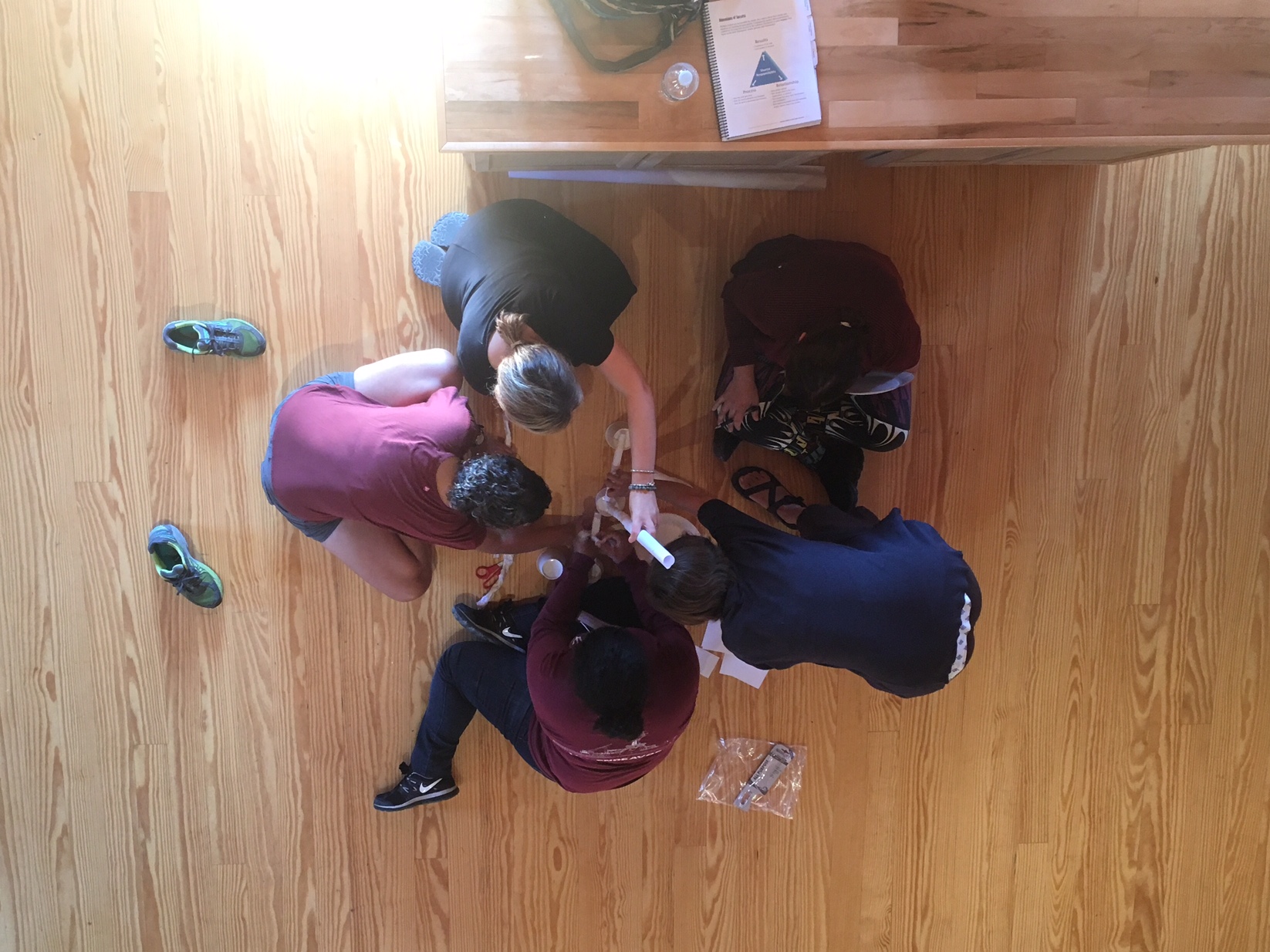
2017-2018 NLI cohort members engage in a team building exercise focused on the dimensions of collaborative success.
Last week I worked with the Backbone Team of Food Solutions New England to launch the second cohort of the Network Leadership Institute (NLI) at Ohana Camp in Fairlee, Vermont. This initiative has grown out of FSNE’s commitment to cultivating both thought leadership and network leadership “to support the emergence and viability of a New England food system that is a driver of healthy food for all, racial equity, sustainable farming and fishing, and thriving communities.” Another impetus for the NLI was a year spent doing system mapping and analysis that revealed four leverage areas for advancing a just, sustainable and democratically-owned and operated regional food system, including cultivating and connecting leadership (see image below). Read More
June 7, 2017
A couple of weeks ago, IISC was invited to offer a post-conference session at the Collective Impact Forum Conference in Boston. The title of this 8 hour session spread over two days was “Advancing Racial Justice Through and Within Collective Impact.” This was an opportunity for Cynthia Silva Parker and Curtis Ogden to formalize our ongoing efforts to bring IISC’s core collaborative methods, frameworks and a variety of racial justice content and tools to the different elements of the Collective Impact framework.
We were heartened to see and hear the many conversations about racial equity during the main conference proceedings, and noted good and challenging questions and exploration about the fit between the Collective Impact model, such as it has been formally presented and understood, and community organizing and power building work. These conversations continued in some form or fashion during our session. Read More
May 29, 2017
I recently received an email from the NorthSky Nonprofit Network about a practice group they have called the “Network Sandbox.” They introduce a tool (for “Tuesday Tool Time”) and invite members to play with it. I was happy to be told that they recently incorporated “connection stories” as a tool. Here is their invitation to participants to stretch and innovate:
This week’s tool is inspired by the new connections catalyzed by the mini-grants. While the survey we used collected some anecdotal information about the new connections, it left all of us wanting more… richer, deeper stories about these connections. Curtis Ogden from the Interaction Institute for Social Change (IISC), calls connection stories “critical nutrients” for networks that “feed a network forward.”
Tool: Connection Stories
Source: Interaction Institute for Social Change
Purpose: Collect and share stories of connections that have happened because of networks and share them back to the network to inspire more of the same.
From Curtis’s blog: Making these stories more explicit and accessible can have a number of different impacts:
- They model the importance of reaching out across boundaries and to “the other”
- They encourage network behaviors that build a foundation of trust and understanding, which …
- Contribute to “network effects” such as resilience, adaptation, and innovation.
- They can encourage cultures of equity, inclusion and diversity.
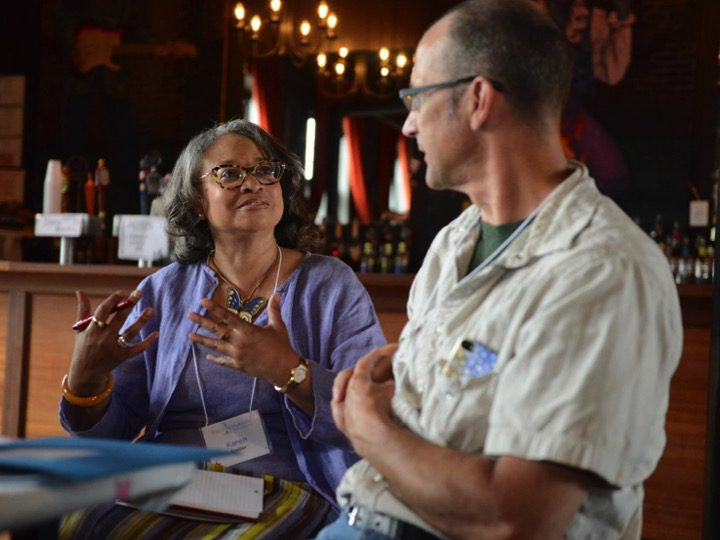
May 8, 2017
“Clearly, we made some people uncomfortable. Good. For too long, our comfort has come on the backs of many who have been uncomfortable for a long, long time.”
–Niaz Dorry, FSNE Process and Network Team Member

Food Solutions New England (FSNE) is a regional, collaborative network organized to “support the emergence of a New England food system that is a resilient driver of racial equity and food justice, sustainable farming and fishing, and thriving communities.”
For the past 5 years, IISC has supported FSNE to launch and structure itself as a formal network, as well as to concretize and evolve its core commitment to racial equity as it has become more diverse and inclusive and focused on systemic transformation. Over the winter, editorial staff from the Othering and Belonging Journal at the Haas Institute for a Fair and Inclusive Society solicited an article submission from FSNE to tell the story of why and how the network has operationalized its commitment to racial equity and food justice.
“While Othering processes marginalize people on the basis of perceived group differences, Belonging confers the privileges of membership in a community, including the care and concern of other members. As [john a.] powell has previously written, ‘Belonging means more than just being seen. Belonging entails having a meaningful voice and the opportunity to participate in the design of social and cultural structures. Belonging means having the right to contribute to, and make demands on, society and political institutions.'”
–Andrew Grant-Thomas, from Othering and Belonging Editors’ Introduction
The article was published last week under the title “Equity as Common Cause,” co-authored by El Farrell, Tom Kelly and Joanne Burke of the UNH Sustainability Institute (the convenor of FSNE), Karen Spiller of KAS Consulting and the Albert Schweitzer Fellowship (Karen is lead FSNE Ambassador) and myself, as network facilitator, with input and voices of many others, including Connecticut Senator Marilyn Moore, Julius Kolawole of the African Alliance of Rhode Island and Niaz Dorry of North Atlantic Marine Alliance. Read More
February 27, 2017
“We add value to society-at-large when we dare to connect.”
– Gibran Rivera

For the past five years, Food Solutions New England has been building a regional collaborative network organized to support the emergence and sustainability of a New England food system that is a driver of healthy food for all, racial equity, sustainable farming and fishing, and thriving communities. This network was formally launched with support of IISC in response to a shared sense that greater connection, trust, deep collaboration and innovation were needed across food system efforts throughout the region. To create this connectivity, we have engaged in a number of structural and procedural innovations, including creating an Ambassador Team to do network weaving and the 21 Day Racial Equity Habit Building Challenge, which will happen again this year from April 9-29.
Along the way, we have been witnessing some important boundary-crossing and new partnerships emerging. One example in particular stands out, stemming from a field visit a number of us did to a fishing community in the region to learn more about the challenges to and innovations among small scale fishermen. Our tour was organized by a network team member and community organizer of color who focuses on fisheries who has many deep connections in that community. One of the attendees of the tour was an older white man who does policy work in another state. Personality-wise, these two individuals are quite different, along with their chosen points of intervention in the food system. And yet on the heels of that tour, the organizer and the policy wonk became good friends and colleagues who continue to learn from one another and coordinate more around fisheries and policy analysis/development, creating new opportunities in and across their respective worlds. Read More
October 25, 2016
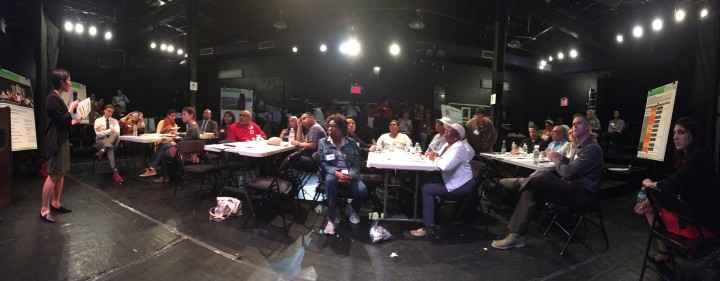
A team of us at IISC are partnering with an engineering firm to work on a climate change resiliency planning initiative in a vulnerable neighborhood in New York City. Our role is to lead the creation and implementation of a “stakeholder engagement plan” for broad-based input into project deliverables, including a fully funded infrastructure project and a feasibility study.
In developing our proposal for this initiative, we were guided by the notion that resiliency can and should be a core feature of social structures and processes. That is, threats to resiliency are found not simply in conditions such as low lying coastal communities or lack of back-up energy generation, but also in social disconnection and impaired flows of key resources. We were already aware of some of the vulnerabilities of this particular community, as well as its strengths in that it is well-organized and has a considerable density of social services and community organizations. That said, even when there are such assets in a neighborhood, there are many examples of municipally-sponsored projects that by-pass or fail to fully honor existing assets and networks in a community, with results ranging from missed opportunities to actually leaching resources (including time and trust). Read More
October 12, 2016

I can’t remember exactly where I saw the phrase recently, but I latched onto it. “Connections change what is connected.” So true. And this is a reason to seriously consider the power and promise of building networks for social change.
In our mainstream culture it seems that many people tend to look at things in isolation, without appreciating that context and relationship have so much to say about the nature of … well, everything. Think about the following examples: Read More
September 13, 2016
Think like a network, act like a node.
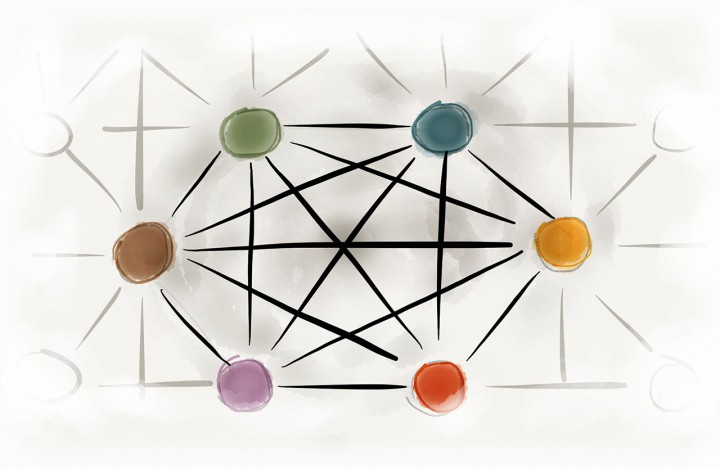 At IISC, we continue to emphasize that networks, not organizations, are the unit of social change. Part of the reason for this is that networks at their best are able to leverage what are known as “network effects.” These effects, as described by Madeleine Taylor and Peter Plastrik, include the following:
At IISC, we continue to emphasize that networks, not organizations, are the unit of social change. Part of the reason for this is that networks at their best are able to leverage what are known as “network effects.” These effects, as described by Madeleine Taylor and Peter Plastrik, include the following:
Rapid Growth and Diffusion
Through its myriad nodes and links, as well as the ongoing addition of participants and new pathways, a dense and intricate network can expand quickly and broadly. This can be critical for spreading information and other resources and mobilizing actors in ways that organizations simply cannot achieve.
Read More
August 9, 2016
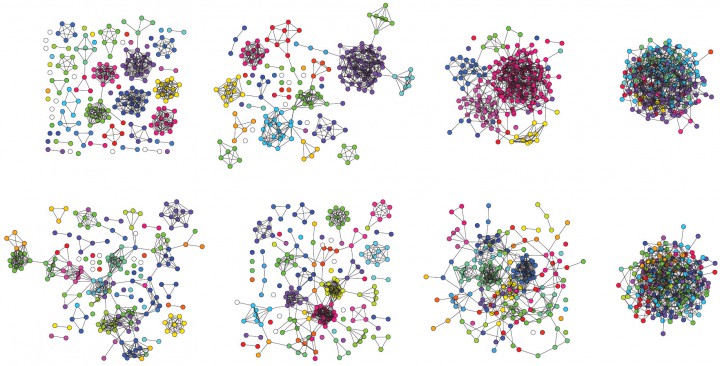
Social change networks are complex, compared with other human organizational forms; they are not so easily controlled, directed or predicted. And that is as it should be, especially when dealing with real life diversity and uncertainty. This can cause some anxiety on the part of those who would like to be able to better control for outcome and process and may not be very comfortable with emergence and self-organization. But these are the life blood of complex networks, part of their intelligence and effectiveness, even as people may struggle to wrap their heads around the full picture of what is happening. That’s the way life works.
That said, experience suggests that there is an important effort to be made and role to be played in tracking (even if imperfectly and incompletely) the unfolding story of a social change network over time. This is especially important for those in pursuit of hard evidence of effectiveness and/or some kind of guarantee that there is return on one’s investment of time and other resources. I have noted previously and continue to be struck by the fact that seeing signs of network impact can indeed be difficult, perhaps because of a kind of conditioning around what constitutes “action” and “success.” Furthermore, the pace of life can cut against an appreciation for what is moving right before one’s eyes in fairly nuanced and perhaps more measured ways. Read More
July 7, 2016
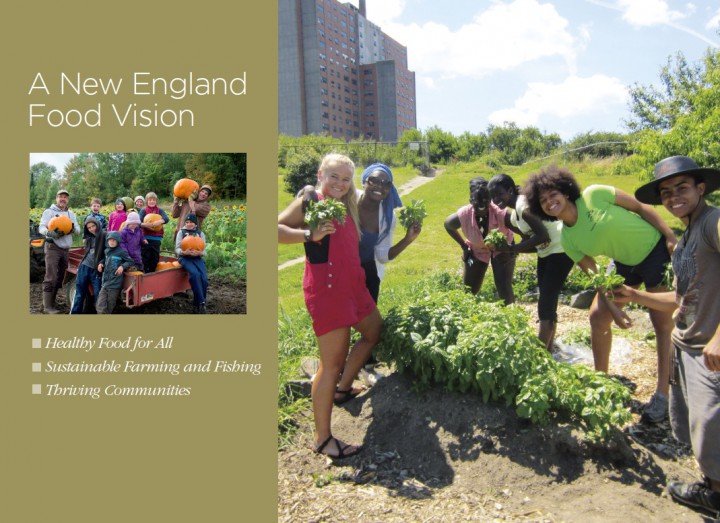
For the past 4 years, IISC has supported Food Solutions New England (FSNE) in developing a network and collaborative practices to forward its work for “an equitable, ecological regional food system that supports thriving communities.” In the past year, this work has included conducting a system mapping and analysis process to identify leverage areas for regional strategy development. One of these leverage areas is “making the business case for an equitable ecological regional food system,” which includes thinking at the levels of individual food-related businesses, economic development, and political economy. Strategy development will begin in earnest this fall, and as a precursor, IISC and FSNE facilitated a convening of businesses and community members in the Boston area to discuss how business are already aligning with the New England Food Vision and the real challenges that stand in the way. What follows is a summary of that evening’s conversation.
“You have to be patient, develop trust, and have people go with you.” These were words from Karen Masterson, co-owner of Johnny’s Luncheonette in Newton, MA as she talked about what it takes to align her business with the aspirations of the New England Food Vision. Read More
June 7, 2016

re·gen·er·a·tion
rəˌjenəˈrāSH(ə)n/
Renewal, revival, restoration; spiritual transformation; an aspect of living systems without which there would be no life; a process through which whole new organisms may be created from fractions of organisms; an adaptive and evolutionary trait that plays out at different systemic levels.
Readers of this blog know that at IISC we do not see building networks simply as a tactic, rather networks are more fundamental as structures underlying healthy living systems (ecosystems, human communities, economies, etc.). This is especially true when there is focus on the regenerative potential of social-ecological networks. That is, in paying attention to qualities of diversity, intricacy and flow in network structures, people can support systems’ ability to self-organize, adapt and evolve in ways that deliver vitality to participants and to the whole.
In my conversations with the Research Alliance for Regenerative Economics, we have been developing a list of design principles for and indicators of the human factors in healthy (regenerative) networks. Here is a working list of 12 and readers are invited to offer adjustments, additions, and comments: Read More
May 31, 2016

Last week I attended another meeting of the Research Alliance for Regenerative Economics (RARE) and we deepened our conversation about a “regenerative framework” for guiding system change. Underlying our conversations is the premise that many living systems – ecological, economic, social – are reaching or have already reached a point of crisis where they can no longer respond to changing conditions in such a way that humanity, or significant portions thereof, can thrive. Another way of saying this is that these systems are losing their capability for resilience (to “bounce back” from perturbations) and regeneration (to self-organize and evolve). Our discussions are focused specifically on the dynamics of networks, human and otherwise, and what these can tell us about why we are where we are socially and ecologically and what can be done to alter current conditions and humanity’s long-term prospects.
Breeding disconnection, diminishing diversity and stemming resources flows is “irresponsible.”
Read More

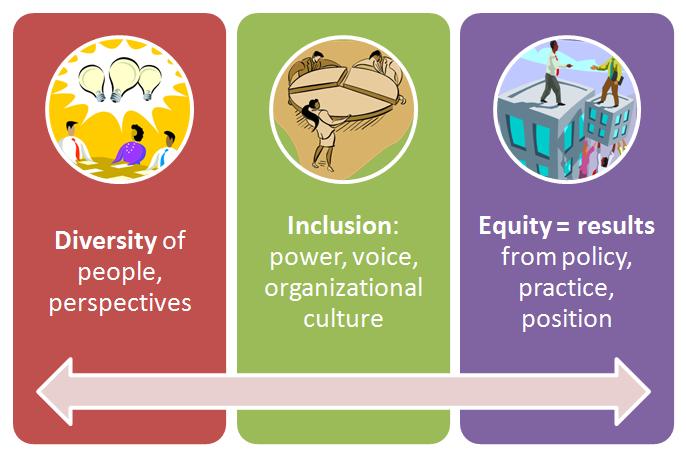





 At IISC, we continue to emphasize that
At IISC, we continue to emphasize that 


